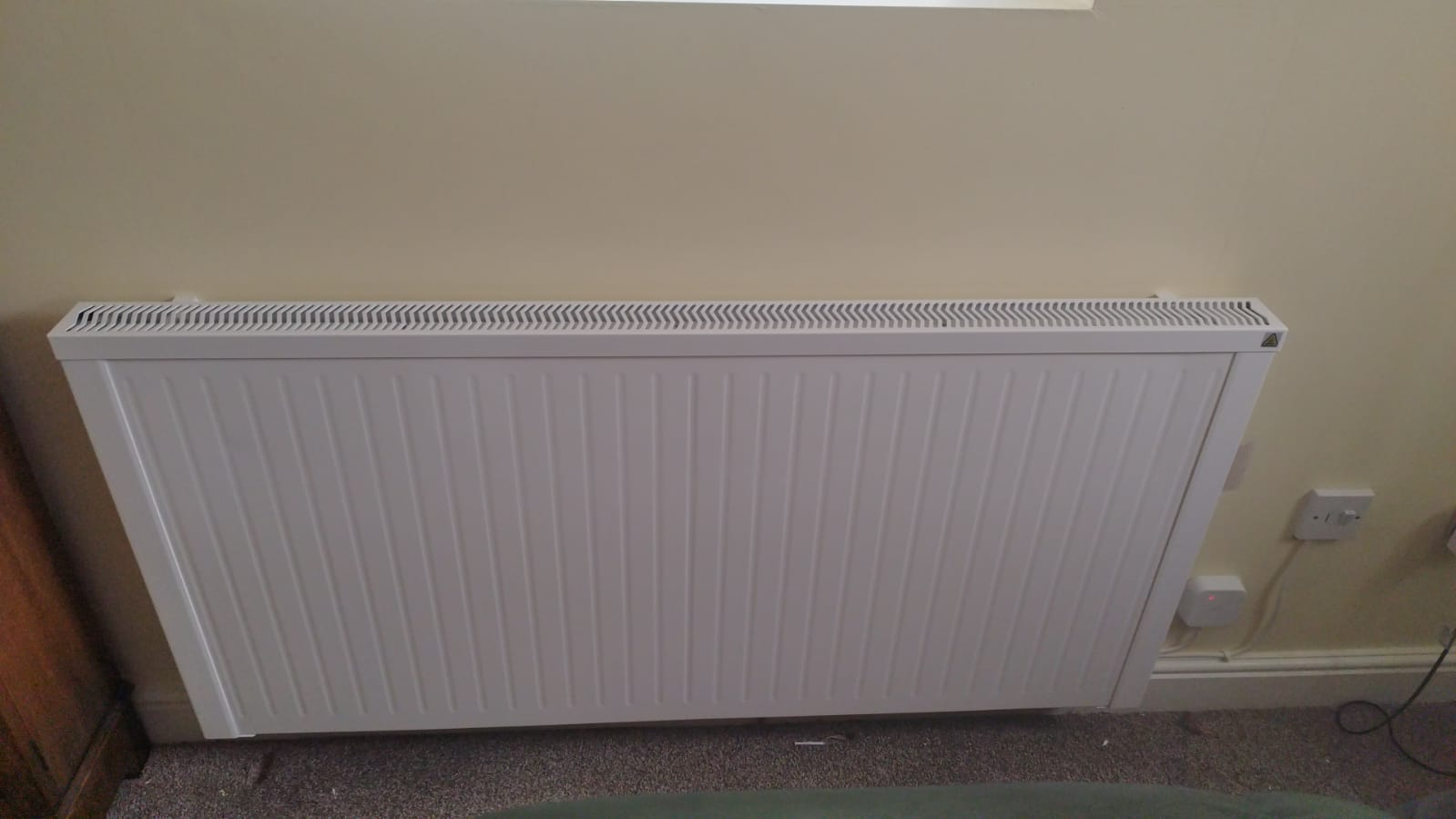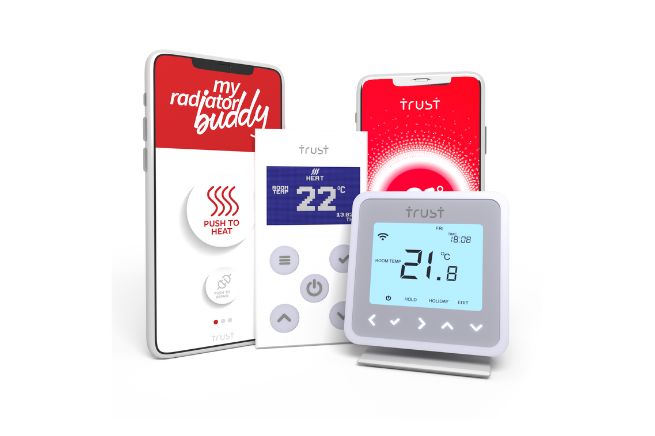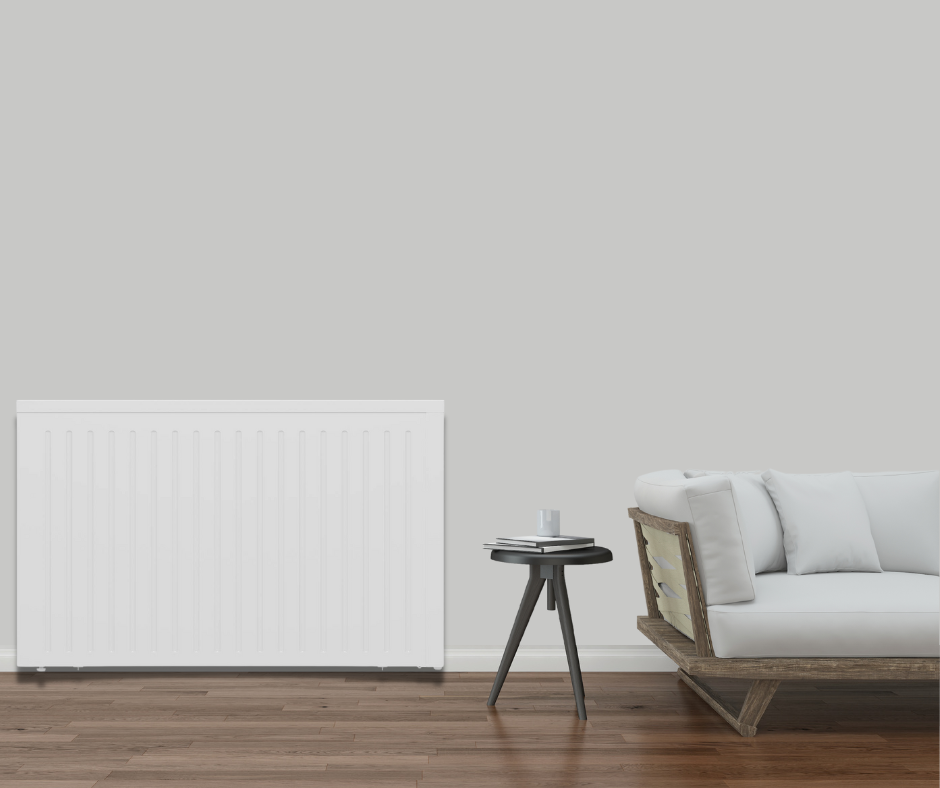
Electric heating solutions are becoming increasingly popular among homeowners, and with good reason. However, with so many options available, it can be difficult to know which one is right for your needs. In this article, we’ll take a closer look at two popular electric heating solutions - electric radiators and panel heaters - and help you decide which one is the best fit for your home.
Electric radiators are an advanced form of electric heating that works by heating up a element inside a sealed unit. This element is then warmed up and even when the heater is off it will continue to emit heat for a certain period of time depending on the core itself. Therefore you get more heat for cheaper heating bills. One of the key benefits of electric radiators is their ability to maintain a consistent temperature and provide precise temperature control, making them highly efficient. Additionally, electric radiators are easy to install and can be used in any room of the house.

Panel electric heaters are a simpler form of electric heating, consisting of a flat panel with cheap heating elements behind it, which emit heat into the air of the room. While panel heaters are easier to use and often cheaper to install than electric radiators, they’re not as efficient and don’t provide the same level of control over temperature. Panel heaters are best used in smaller rooms or as a supplemental heating source.
When deciding between electric wall radiators and panel heaters, there are several key differences to consider. These include:
Electric radiators are designed to look like traditional central heating radiators. This means that they come in a range of sizes and styles, including vertical and horizontal designs, and are often made from materials like aluminium or steel. Electric radiators are available in a wide variety of finishes, such as white, black, chrome, and even wood effect finishes, so they can complement any decor. They are often considered to be a more attractive option than electric panel heaters, and can even be used as a design feature in a room.
Electric panel heaters, on the other hand, are typically slim, flat panels that can be mounted on walls or placed on feet. They are usually white or off-white in colour and have a minimalist appearance. While they are not designed to be a design feature in a room, they are often chosen for their unobtrusive appearance.
Electric radiators are designed to provide a comfortable and consistent level of heat. They use a combination of convection and radiation to distribute heat, with the radiator heating up and then radiating warmth into the room. This method of heating is known to be more energy-efficient than traditional central heating systems, as there is no need to heat up large amounts of water. Electric radiators can also be individually controlled, which allows for greater energy efficiency.
In contrast, electric panel heaters rely solely on convection to heat a room. They work by drawing in cool air from the room, heating it up using an electric element, and then circulating the warm air back into the room. While they can be effective at heating small spaces, they may struggle to maintain a consistent temperature in larger rooms.

Electric radiators come with a range of control options, including digital displays, thermostats, and timers. These features allow you to set specific heating schedules and adjust the temperature to your liking. Some electric radiators can also be controlled remotely via a smartphone app, making it easy to manage your heating system from anywhere.
Similarly, electric panel heaters usually have built-in thermostats and timers, but may not offer the same level of control as electric radiators. They are often more basic in terms of programming, and may not be compatible with remote control options.
Electric radiators are typically easy to install, as they can be mounted on walls or simply plugged in to a nearby socket. They also require little to no maintenance, as they do not contain any moving parts or require regular cleaning.
Electric panel heaters are similarly easy to install, and can be mounted on walls or placed on feet. However, they may require more maintenance than electric radiators, as the heating element can become clogged with dust and debris over time. Regular cleaning is required to ensure that the heater operates at maximum efficiency.

Electric radiators are generally better suited for larger rooms or open-plan spaces, as they are designed to provide a consistent level of heat across a large area. They can also be individually controlled, which allows you to adjust the temperature in specific areas of a room.
Panel heater, on the other hand, are more suited for smaller rooms or areas where targeted heating is required. They are effective at quickly heating up a small space, but may struggle to maintain a consistent temperature in larger rooms.
Electric radiators operate quietly, as they do not contain any moving parts or fans. This makes them a great option for bedrooms or other quiet spaces where noise is a concern.
In contrast, electric panel heaters may produce a low-level noise as the fan circulates air through the heating element. While the noise level is usually not significant, it may be noticeable in quiet rooms.
Electric radiators are generally more expensive to purchase than electric panel heaters. However, they are often considered to be a more cost-effective heating solution in the long run, as they are more energy-efficient and can save money on heating bills over time.
Electric panel heaters are usually cheaper to purchase upfront, but may be more expensive to operate over the long term due to their lower efficiency.
Electric panel heaters are generally more mobile than electric radiators, as they can be easily moved from room to room or stored away when not in use. This makes them a good option for those who want a portable heating solution.
Electric radiators, on the other hand, are designed to be mounted on walls or placed in a fixed location. While some models may come with wheels for easy movement, they are generally less mobile than electric panel heaters.

Ultimately, the choice between the range of energy efficient electric radiators and electric panel radiators wall mounted comes down to your individual needs and preferences. If you’re looking for a highly efficient heating solution that provides precise temperature control and even heat distribution, then electric radiators are likely the better choice. However, if you’re looking for a simpler and more affordable option for heating a smaller room, then electric panel heaters may be a good choice.
Regardless of which one you choose, it’s important to choose a reputable brand and work with a qualified electrician or installer to ensure that your heating system is installed safely and properly.
Electric radiators and electric panel heating are both popular electric heating solutions, but they do have significant differences in terms of efficiency, heat distribution, price, running costs, installation, and room size suitability. By understanding these differences, you can make an informed decision about which one is right for your needs.
If you’re still unsure which one to choose, don’t hesitate to contact us. As experts in electric heating, we’re always happy to provide expert advice and help you find the perfect heating solution for your home.
Tags: Comparisons.

If you are considering electric heating/electric radiators, then this guide tells you everything you need to know. Discover this modern, sustainable and economical method of heating that gives you complete control and comfort. Download Free Guide now.

*Trust Electric Heating needs the contact information you provide to us to contact you about our products and services. You may unsubscribe from these communications at any time. For information on how to unsubscribe, as well as our privacy practices and commitment to protecting your privacy, check out our Privacy Policy.
Quick installation and a 100 day warmth guarantee. Whether you’re buying one or several radiators, if our radiators don’t heat your room to a minimum of 20 degrees we will undertake to upgrade or replace the radiators free of charge.
Book your free consultation